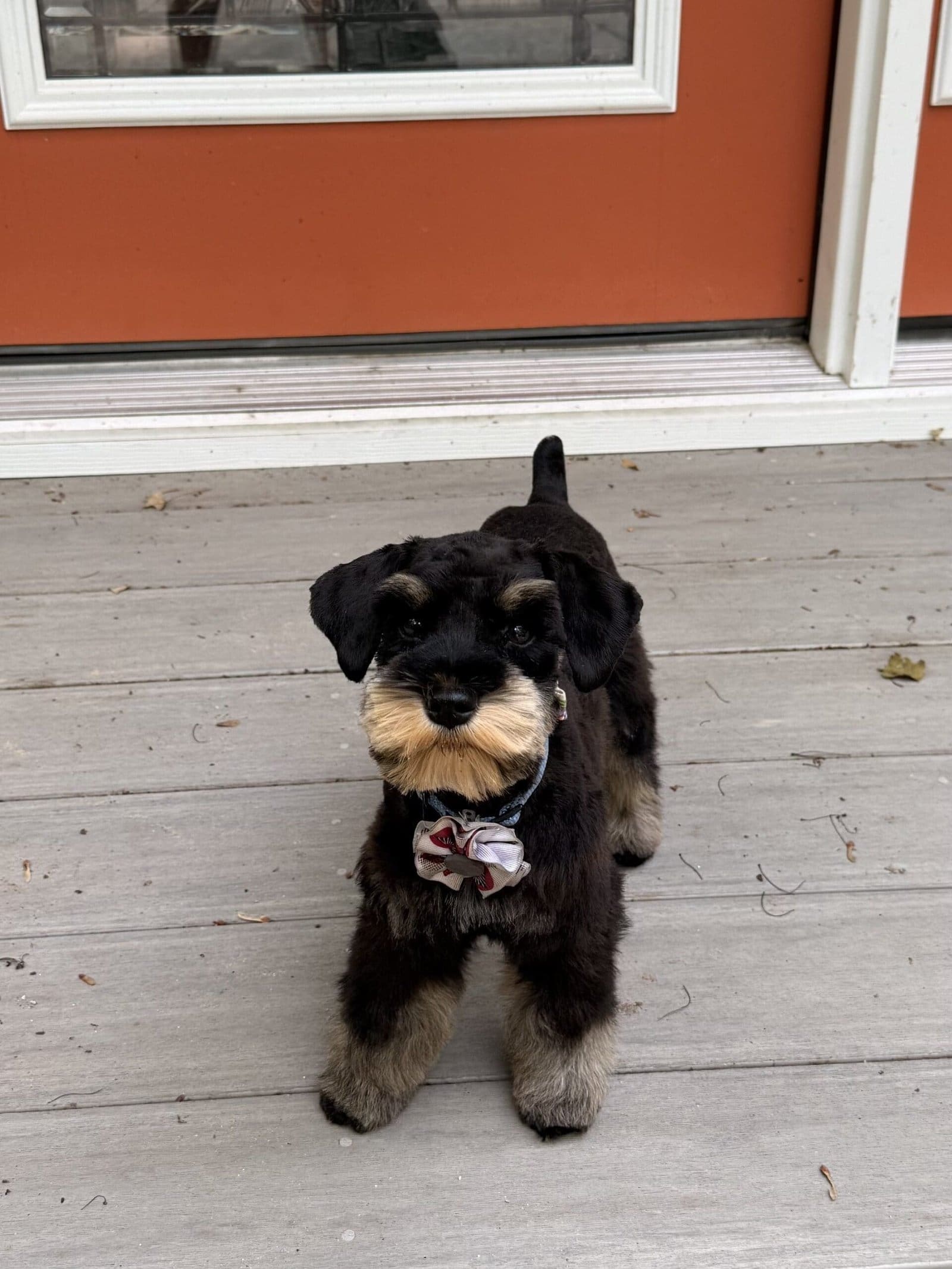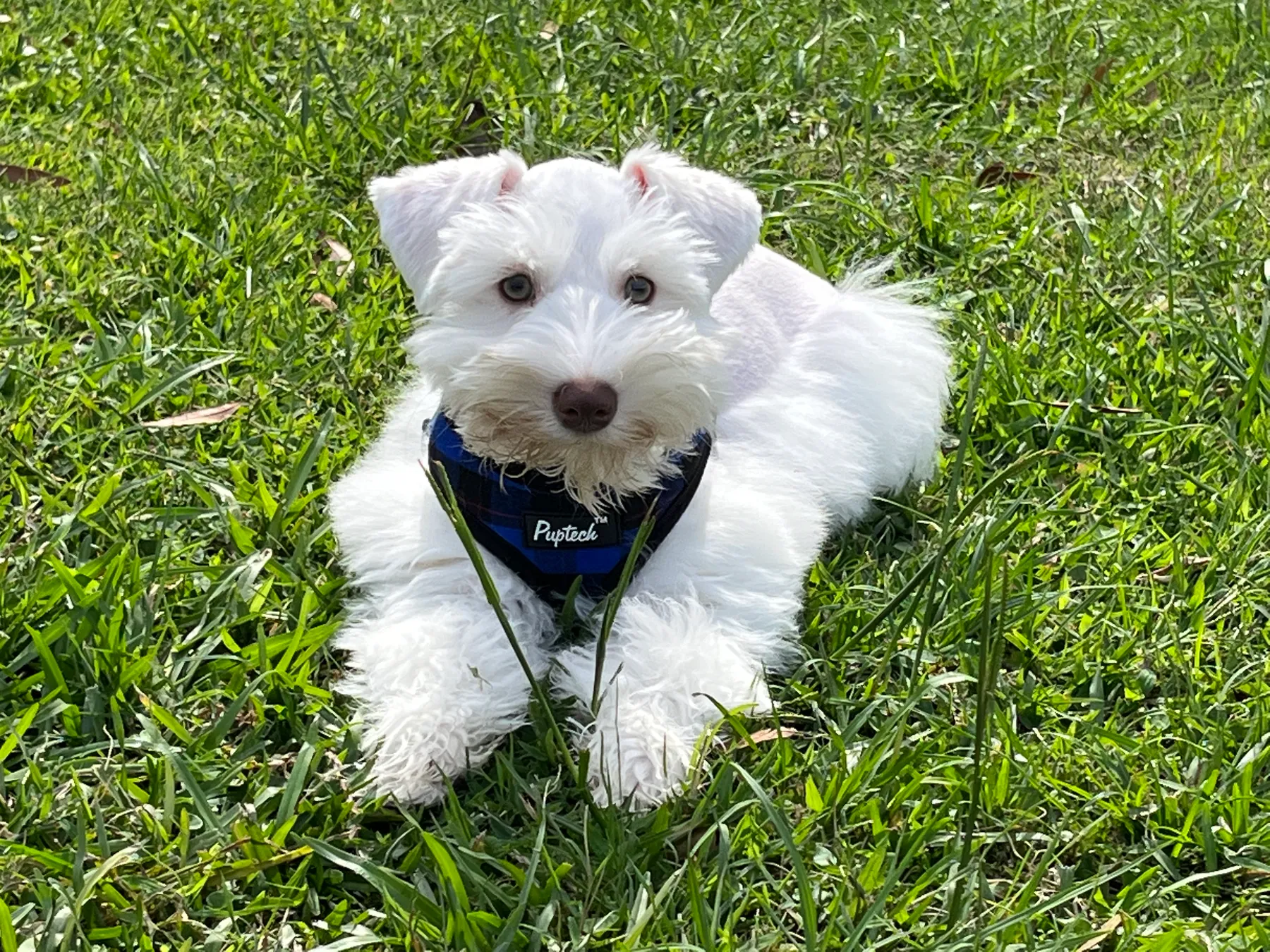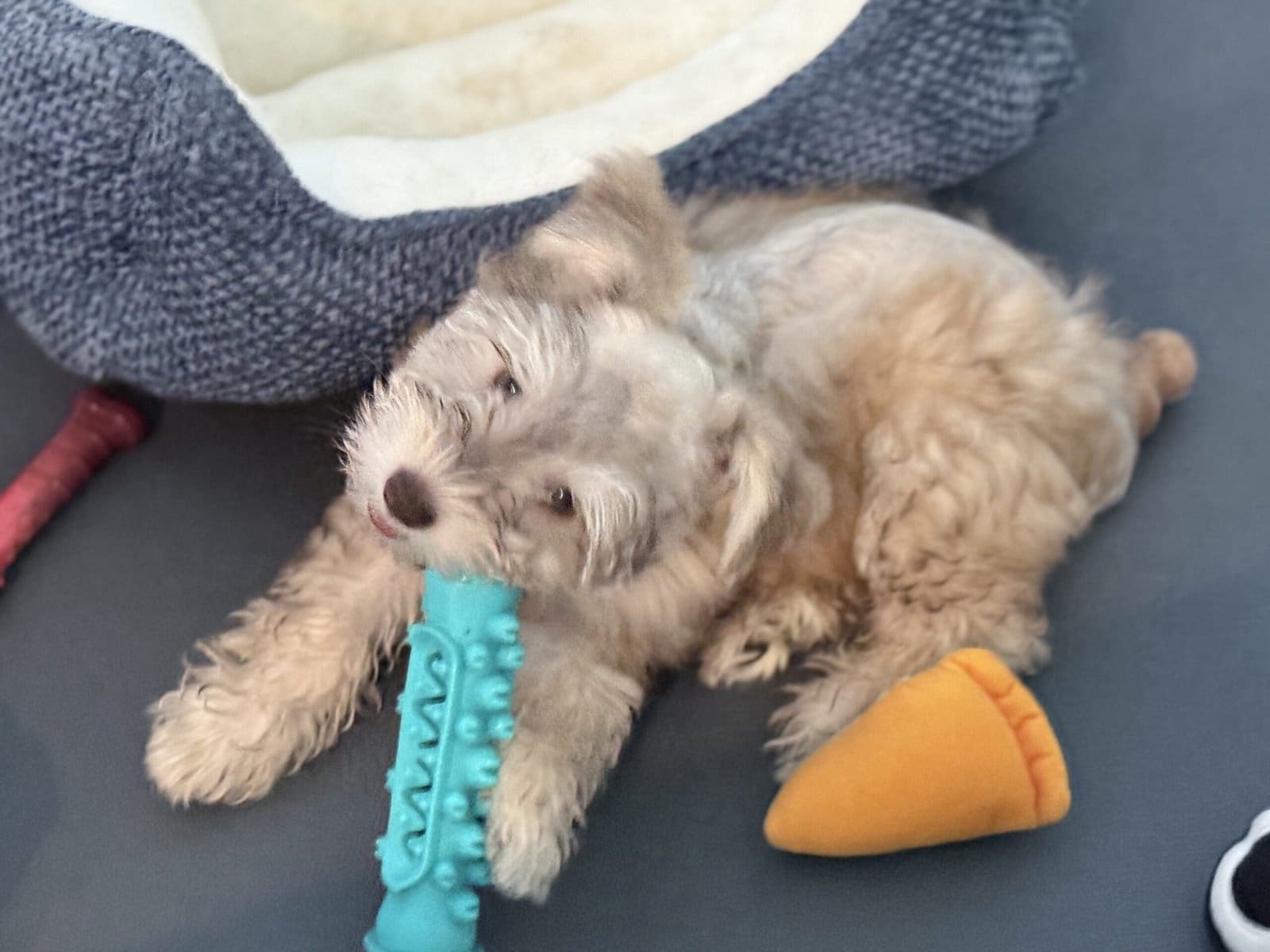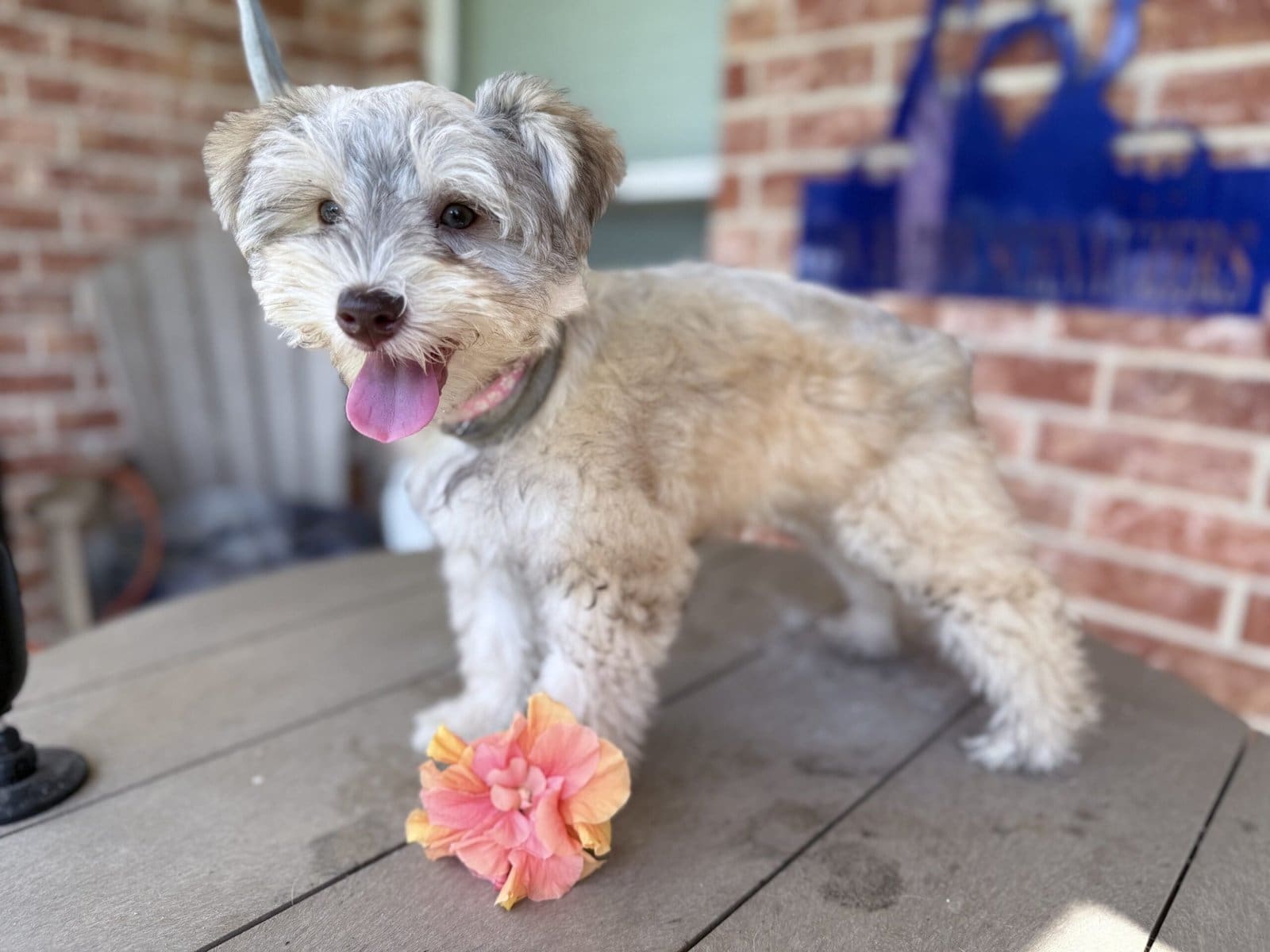
Bringing home a Miniature Schnauzer puppy is an exciting and rewarding experience. These intelligent, affectionate, and playful dogs make wonderful companions, but the first six months of their life are crucial in shaping their behavior, health, and overall development. In this **Miniature Schnauzer Training Puppy Guide**, we will walk you through what to expect during this formative period and provide expert tips on feeding, training, socialization, vaccinations, and more.






For more expert tips and guidance, this “Miniature Schnauzer Puppy Training Guide” provides everything you need to know for a successful journey with your new puppy. If you’re looking for a well-bred, health-tested Miniature Schnauzer, Von Baron Schnauzers is committed to producing top-quality puppies that will bring joy to your home for years to come.
When it comes to training, treats are one of the most powerful motivators for your dog. Dogs love food, and using high-quality, healthy treats during training sessions will encourage them to perform behaviors they find rewarding. Healthy treats should be nutritious, low in fat, and made with natural ingredients, so you’re providing your dog with something tasty and healthy as part of their learning experience.
A treat pouch helps reinforce positive behaviors quickly, which is essential for effective training. Just remember to keep the pouch full with healthy treats, and your dog will be ready to learn on cue!
https://www.dogster.com/dog-training/how-to-train-a-miniature-schnauzer